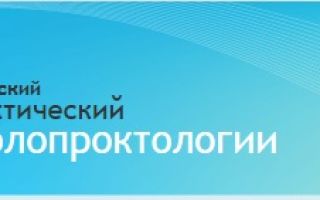Detailed information can be obtained on the website http://www.proctologspb.ru/
The telephone number of the compulsory medical insurance department (polyclinics) is 409-13-83
from 9.00 to 20.00 on weekdays.
Content
Paid consultations
Paid consultations are carried out at the departments of the St. Petersburg Center for Coloproctology by departmental surgeons. In this case, the doctor who advised you, if necessary, will be your attending physician in the hospital.
Reception schedule:
Monday, Wednesday, Thursday, Friday from 9.00 to 14.00
Tuesday from 9.00 to 20.00
Please note that if you want to see a specific doctor, his visiting hours may vary depending on workload. Phone numbers for signing up for paid consultations are given below:
Department of planned coloproctology
905-57-46 (from 9.00 to 19.00 on weekdays)
(8-812) 409-26-38 (from 9.00 to 16.00 on weekdays)
About the center
The St. Petersburg Scientific and Practical Center for Coloproctology is the largest and well-equipped institution of its profile in the North-West region. It is located in the park area of Krestovsky Island on the basis of City Hospital No. 9. The hospital's bed capacity is 200 beds, which allows hospitalization of 8-8.5 thousand patients, of which 5-5.5 thousand are operated on per year. The Center is headed by the chief coloproctologist of St. Petersburg, Professor Sergei Vasilievich Vasiliev.
Diseases of the gastrointestinal tract
In this section of our website, we have tried to collect the most complete information on diseases treated by specialists at the St. Petersburg Coloproctology Center. Below is a detailed list of diseases:
- anal incontinence (fecal incontinence);
- anal fissure;
- anal papillae (papillitis);
- anal itching;
- appendicitis;
- Barrett's disease;
- Hirschsprung's disease;
- Crohn's disease;
- rectal prolapse;
- haemorrhoids;
- abdominal hernia;
- hiatal hernia;
- dermoid cysts (teratomas);
- colon diverticulosis;
- constipation;
- intestinal obstruction;
- colorectal cancer (cancer of the colon and rectum);
- cryptite;
- nonspecific ulcerative colitis;
- pancreatitis;
- acute paraproctitis;
- perianal condylomas;
- polyps of the colon and rectum;
- proctosigmoiditis (colitis);
- rectocele;
- rectal fistulas (chronic paraproctitis);
- cholecystitis (cholelithiasis);
- epithelial coccygeal duct;
- peptic ulcer of the stomach and duodenum.
Diagnostic methods
This section of our website describes the main methods for diagnosing proctological diseases. Of the described methods, the Center does not yet have methods of computer and magnetic resonance imaging, virtual colonoscopy, or capsule endoscopy. If it is necessary to perform such studies, we refer patients to other clinics, in particular to the St. Petersburg State Medical University named after I.P. Pavlova, whose base is our clinic.
All existing methods can be divided into several main groups:
- consultation with a proctologist;
- endoscopic;
- gastroscopy (fibrogastroscopy);
- anoscopy;
- rectoscopy (sigmoidoscopy);
- colonoscopy (fibrocolonoscopy);
- capsule endoscopy;
- X-ray;
- plain radiography of the abdominal cavity;
- X-ray contrast examination of the esophagus and stomach;
- irrigoscopy;
- CT scan;
- virtual colonoscopy;
- ultrasonic;
- Ultrasound of the abdominal cavity;
- Ultrasound of the pelvis;
- endorectal ultrasound;
- Magnetic resonance imaging;
- functional;
- determination of the rectoanal reflex;
- laboratory







